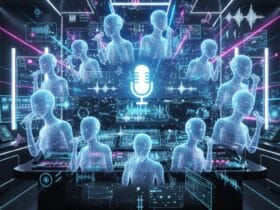Hello folks, in this article, we are presenting to you how do social networks affect student productivity? So, Our lives have become increasingly reliant on social media networks. Almost everyone nowadays has a Facebook or Instagram account. People are so glued to social media that the first thing we do in the morning is to check our phones for notifications. This is a habit that may be found anywhere, from the home to the school or the business. We sneak into our phones no matter where we are so that we don’t miss anything crucial.
According to some estimates, people spend two or more hours daily on social networks. However, these figures vary greatly from country to country. For example, Filipinos spend about four hours on social media every day, and Americans spend even more. Doesn’t that sound impressive? In fact, instead of doing something really valuable, we spend a large part of our lives surfing the web and talking to other people. Naturally, this takes a toll on our productivity, especially if we are students. And then we don’t get anything done, need help with academic assignments, and have to turn to homework help websites. Let’s take a closer look at how this works.
What Is The Impact Of Social Media On Productivity?
Excessive usage of social media has been shown in multiple studies to impair attention span. Experiments show that heavy social media users have a considerably harder time focusing on a task than individuals who only use communication platforms infrequently.
Apart from that, it has been proved that social media causes sleep deficiency. Our sleep is less deep and restorative when we are exposed to blue screens. As a result, tiredness causes a drop in productivity during the day.
Furthermore, social media encourages “outside-the-box” thinking. According to psychologists, there is a link between the widespread “herd mentality” and the growing usage of social media. In other words, rather than establishing our own viewpoint on a topic, we are more prone to accept the most popular viewpoints as universal truth. Lack of critical thinking eventually leads to poor learning outcomes.
Last but not least, social media can lead to poor mental health. Communication platforms, according to neuroscientists and doctors, destroy your nervous system. It goes without saying that it can make it difficult to concentrate on academic work. That’s why you need to fix your mental health. So, what are your options in this situation?
Assisting Students’ Productivity
If you’ve realized that your productivity is at an all-time low and you don’t know what to do about it, it’s time to seek assistance. Students, fortunately, have a wide range of possibilities from which to pick.
To begin, you can request that your professors explain complex concepts so that you can gain a better understanding of the subject. Things get easier when they get less complicated. When I was a student, I used the essay help service EssayAssistant.
When I couldn’t finish my papers on my own, I would say, “EssayAssistant write an essay for me please,” and then the experienced essay writers would respond and help me with my homework of any complexity (even my philosophy homework or geometry homework). Because the professional writers consistently did a good job, I was able to turn in my projects on time.
What Are Some Strategies For Spending Less Time On Social Media?
First and foremost, you should use your smartphone’s’mute’ option to avoid being distracted by frequent notifications. If you can’t do it because you’re waiting for a crucial call, you can use the mute feature in most apps. On Instagram, for example, you may mute everyone who saves a few accounts you really like. As a result, you’ll spend less time on social media.
Second, don’t check your phone until after 10 a.m. Of course, if you’re used to browsing through Facebook first thing in the morning, it can be challenging. However, you should be aware that it is a complete waste of time and effort. Try to visit social media only after you’ve completed your morning routine and set an objective for the day ahead. Take a cup of coffee, write down what you’re grateful for in your gratitude journal, and then pick up your phone.
‘No phones on the table’ is another rule that helps you spend less time on social media. It would be advantageous for you to create a phone-free zone in your home by keeping your kitchen table devoid of all electronic devices. Also, if you’re out to lunch with friends, try to encourage them to put their phones in the middle of the table and not check their notifications.
Finally, Some Thoughts
Social networking networks, as you can see, have a negative impact on productivity. Excessive use of technology reduces attention span, disrupts sleep, disrupts mental health, and prevents ‘out-of-the-box thinking,’ thus it’s best to avoid it. Hopefully, this post has given you a better understanding of how to keep your efficiency high. That is how do social networks affect student productivity?










